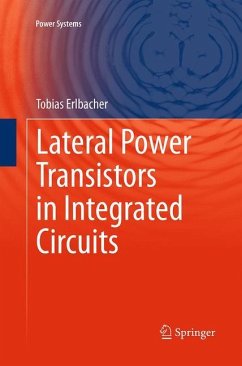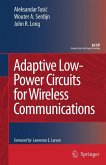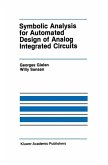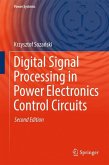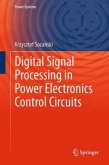The book summarizes and compares recent advancements in the development of novel lateral power transistors (LDMOS devices) for integrated circuits in power electronic applications.
In its first part, the book motivates the necessity for lateral power transistors by a top-down approach: First, it presents typical energy conversion applications in modern industrial, automotive and consumer electronics. Next, it introduces common circuit topologies suitable for these applications, and discusses the feasibility for monolithic integration. Finally, the combination of power and logic functionality on a single chip is motivated and the requirements and limitations for the power semiconductor devices are deduced.
The second part describes the evolution of lateral power transistors over the past decades from the simple pin-type concept to double-acting RESURF topologies. It describes the principle of operation for these LDMOS devices and discusses limitations of lateral power devices. Moreover, figures-of-merit are presented which can be used to evaluate the performance of the novel lateral power transistors described in this book with respect to the LDMOS devices.
In the last part, [..] the fundamental physical concepts including charge compensation and trench gate topologies are discussed. Also, the status of research in LDMOS devices on silicon carbide is presented. Advantages and drawbacks for each of these integration approaches are summarized, and the feasibility with respect to power electronic applications is evaluated.
In its first part, the book motivates the necessity for lateral power transistors by a top-down approach: First, it presents typical energy conversion applications in modern industrial, automotive and consumer electronics. Next, it introduces common circuit topologies suitable for these applications, and discusses the feasibility for monolithic integration. Finally, the combination of power and logic functionality on a single chip is motivated and the requirements and limitations for the power semiconductor devices are deduced.
The second part describes the evolution of lateral power transistors over the past decades from the simple pin-type concept to double-acting RESURF topologies. It describes the principle of operation for these LDMOS devices and discusses limitations of lateral power devices. Moreover, figures-of-merit are presented which can be used to evaluate the performance of the novel lateral power transistors described in this book with respect to the LDMOS devices.
In the last part, [..] the fundamental physical concepts including charge compensation and trench gate topologies are discussed. Also, the status of research in LDMOS devices on silicon carbide is presented. Advantages and drawbacks for each of these integration approaches are summarized, and the feasibility with respect to power electronic applications is evaluated.

